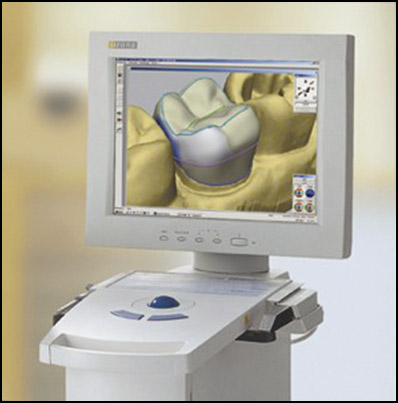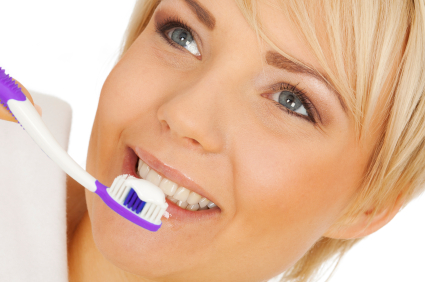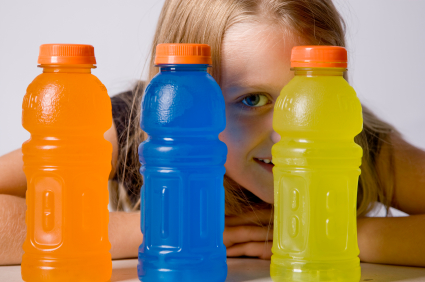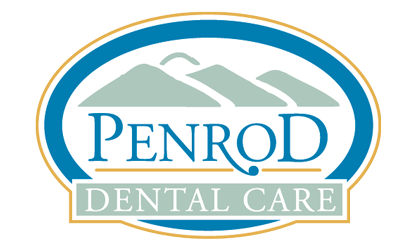Ask the Dentist is a question-and-answer service hosted by Dr. Carey Penrod, DDS. Submit your question about oral health, dental procedures, cosmetic dentistry, or anything related to dentistry and Dr. Penrod will answer! (Be sure to read the Ask the Dentist Terms of Service.)
I Have a Dental Emergency!
Accidents happen, and knowing what to do when one occurs can mean the difference between saving and losing a tooth. For any dental emergencies, it’s important to visit the dentist as soon as possible. If the emergency happens when our office is closed, call anyway! We have emergency numbers on our answering machine for you to find help.
Here are some common dental emergencies and how to deal with them:
Question: What do I do if I knock out my tooth? Or my child?
Answer: For a knocked-out permanent or adult tooth, keep it moist at all times. If you can, try placing the tooth back in the socket without touching the root. If that’s not possible, place it in between your cheek and gums, in milk, or use a tooth preservation product that has the ADA Seal of Acceptance. Then, get to your dentist’s office right away. Don’t lose the tooth!
If the tooth is a baby tooth, the best thing to do is find the tooth, keep it moist and get to the dentist. Your dentist can see whether the entire tooth, or just part of it, came out. Your dentist can also determine whether to implant it again. If it is an adult tooth, follow the steps listed in the previous question.
Q: What if I crack my tooth?
A: For a cracked tooth, immediately rinse the mouth with warm water to clean the area. Put cold compresses on the face to keep any swelling down. See your dentist as soon as possible.
Q: If I bite my tongue or lip, how do I treat it?
A: If you bite your tongue or lip, clean the area gently with water and apply a cold compress. See your dentist or go to the emergency room if there is excessive bleeding, the bleeding won’t stop, or you are in a lot of pain.
Q: How do I treat a toothache?
A: For toothaches, rinse your mouth with warm water to clean it out. Gently use dental floss to remove any food caught between your teeth. Do not put aspirin on your aching tooth or gums; it may burn the gum tissue. If the pain persists, contact your dentist.
Q: What if I think my jaw is broken?
A: If you think your jaw is broken, apply cold compresses to control the swelling. Go to your dentist or a hospital emergency room immediately.
Q: How do I remove an object that’s stuck in my mouth or teeth?
A: For objects stuck in the mouth, try to gently remove with floss but do not try to remove it with a sharp or pointed instrument. The item might be painful or cause an infection, so see your dentist if you cannot remove it, or if you have pain.
Q: Is there anything I should add to my first-aid kit to help with dental emergencies?
A: It’s a good idea to have floss on hand in case something gets caught in your teeth. The Save-a-Tooth emergency tooth preservation kit is also a smart addition to your first aid kit in case you lose a tooth unexpectedly.
Q: How can I avoid a dental emergency?
A: There are a number of simple precautions you can take to avoid accident and injury to the teeth:
- Wear a mouthguard when participating in sports or recreational activities.
- Avoid chewing ice, popcorn kernels and hard candy, all of which can crack a tooth.
- Use scissors, NEVER your teeth, to cut things.
If you have any questions or concerns, please call our office.
This article was sourced from http://www.mouthhealthy.org/en/dental-care-concerns/dental-emergencies/?source=facebook&content=dental_emergencies.
What is Gingivitis?
Why do I need to visit the dentist regularly? Can’t I just go when it hurts?
Many people think that they only need to go to the dentist when they have a problem. Since patients can’t see into their own mouths very well, this usually only happens when something is very painful. We call this “crisis treatment” as opposed to “preventive treatment.” These patients feel like they are saving money and time, but only coming in when there is an emergency usually ends up costing much more (in time and money!). Usually these patients will tell us that nothing was hurting, so they thought they were fine. The problem is most dental problems don’t have symptoms, like sensitivity or pain, until they have reached the advanced stages of the disease.
For example, tooth decay doesn’t usually cause any pain until it gets close to the nerve of the tooth. By that time the patient might need a root canal treatment, and then a crown. This means numerous appointments, for a longer time, and for much more money. All of this can be avoided by regular appointments to catch any problems before they get too bad. Did you know your dentist can usually detect a cavity 3-4 years before it develops any symptoms you can feel? Getting a filling is much faster, easier, and cheaper than a root canal!
So think of your regular appointments as an investment in yourself. A little time and money now to ensure good oral hygiene can save you a LOT of pain, time, and money in the future!
(sourced from http://www.mountaindental.com/
Will soda and sports drinks ruin my teeth?
Your teeth are encased in enamel which protects them from the acidity in everyday food and drinks. However, when your teeth are frequently attacked by drinks with a lot of acid (like soda) the enamel can wear down and that can lead to dental erosion. So if you are drinking a lot of soda or sports drinks with a high acidity level, you are risking decay!
| Drink or Substance (12 oz. serving) | Acid pH | Tsp. Sugar |
| Water | 7.0 (neutral) | 0 |
| Milk | 6.7 | 1 |
| Barq’s Root Beer | 4 | 11 |
| Minute Maid® Orange Juice | 3.8 | 9 |
| Propel® Fitness Water | 3.4 | 1 |
| Red Bull® Energy Drink | 3.3 | 10 |
| Sprite® | 3.3 | 10 |
| Mountain Dew | 3.3 | 12 |
| Diet Coke | 3.1 | 0 |
| Sierra Mist | 3.1 | 10 |
| Full Throttle Energy Drink | 3 | 11 |
| Diet Pepsi | 3 | 0 |
| Gatorade® | 2.9 | 5 |
| Sunkist® Orange Soda | 2.9 | 13 |
| Dr. Pepper | 2.9 | 10 |
| Vault™ Energy Soda | 2.9 | 12 |
| Mountain Dew AMP1 | 2.8 | 11 |
| SoBe Energy Citrus | 2.6 | 12 |
| Minute Maid® Lemonade | 2.6 | 10 |
| Pepsi | 2.5 | 11 |
| Diet Schweppes Tonic Water | 2.5 | 0 |
| Coca-Cola Classic2 | 2.4 | 10 |
| Battery Acid3 (just for comparison–not a drink!) | 1 | 0 |
What’s a Dental Crown?
UPDATE: Same-Day Crowns now available!
Penrod Dental Care uses the advanced CAD/CAM Technology of the CEREC machine to provide our patients with in-office, one-day crowns. No more worrying about your temporary crown breaking or falling off, having to come back in two weeks, or schedule two separate appointments!
Learn more here, or call us today to schedule your appointment!
What is a Dental Crown?
A dental crown is a cap (shaped to look like a natural tooth) that is placed over a damaged tooth. It covers all the visible part of the tooth and helps restore its shape, size, strength, and appearance.
Why Do I Need a Crown?
You might need a crown for lots of different reasons. These can include:
- protecting a weak tooth (or one that has decayed) from breaking
- holding together a tooth that has cracked
- restoring a tooth that is worn down or broken
- covering or helping support a tooth that has a large filling so there isn’t much natural tooth left
- holding a dental bridge in place
- covering a misshapen or severely discolored tooth
- or for cosmetic reasons.
What Does Getting a Crown Take?
Getting a crown on a tooth typically requires two visits to the dentist. The first appointment is for examining and preparing the tooth, and the second is for placing the permanent crown. At the first visit the dentist may take X-rays to check on the tooth and its surrounding area. Next, the tooth will be filed down or built up to help the crown have a good fit and support. After reshaping the tooth, the dentist will make an impression of the tooth that will receive the crown. These impressions will also ensure that the crown won’t affect your bite.
What Do I Do While I Wait?
Impressions will then be sent to a dental lab where the crown will be made. In the meantime, you will wear a temporary crown to protect the tooth during the wait. Your dentist will also give you some pointers on being careful with the temporary crown, such as being careful to avoid chewy, sticky foods that can pull of the temporary crown. This can take two to three weeks. You can find more advice on this on our “After-Visit Instructions” Page.
What If My Temporary Crown Breaks?
If your temporary breaks during this time don’t worry! But do save the temporary and call the office as soon as possible to have it replaced. Generally no harm will be done to the tooth for a couple of days if the temporary is not in place, although the prepared tooth may be sensitive to hot and cold. Please do not leave the temporary out of your mouth for more than two or three days because the teeth will move and the final restoration may not fit—making this an even longer process for you!
Getting My Permanent Crown
Once the lab finishes making your crown you can come back to get it permanently placed. At this second appointment, the dentist will remove the temporary crown and check the fit and color of the permanent crown. If it all looks good, the new crown will be permanently cemented into place. Then the dentists will check the bite, the fit, and how it feels. Congratulations! Your crown is now finished.
A dental crown will last anywhere between 5 and 15 years, but the life span of a crown really depends on the amount of “wear and tear” the crown is exposed to. You should still practice good oral hygiene practices (such as brushing and flossing) and be careful to avoid things like grinding, clenching your teeth, chewing ice, biting fingernails, and using your teeth to open packaging.
Still have questions about dental crowns, or think you may need one? Give us a call today!
SOURCES: American Dental Association. KidsHealth: “Keeping Your Children’s Teeth Healthy.” American Academy of Pediatric Dentistry: “Fast Facts 2011.” Seale, N. Pediatric Dentistry, 2002. WebMD Medical Reference http://www.webmd.com/oral-health/guide/dental-crowns © 2014 WebMD, LLC. All rights reserved.
Are my teeth causing my headaches?
Yes! Did you know that daily morning headaches can be attributed to teeth clenching or grinding?
Many people are unaware that they clench or grind their teeth throughout the night. This can give rise to very tender muscles around your temples and jaw which, in turn, can cause daily headaches. Our office has a simple solution, a dental nightguard.
Custom-fit guards not only reduce headaches, but preserves the enamel on your teeth. This simple device can offer a quick solution for those terrible headaches!
Call our office today so we can set you up for a free consultation.

Less trips to the dental office? Sign me up!
Remember that time you needed a crown, but you had to do it in two visits? Well, we were aware of the inconvenience of spending an extra few hours driving to and from the office again on a different day, but at the time, the best quality dentistry came from taking impressions and and sending the case to an outside lab to fabricate the crown or onlay before we could deliver the final restoration.
Finally, we can do it in just one visit! No more temporaries and no more second appointments! With the latest in Cad/Cam technology, we can take digital pictures of your teeth rather than impressions, and make a permanent crown or onlay right here in our office the very same day! We have been watching this technology evolve for over 20 years, and even tried a similar system three years ago, but the quality just wasn’t there yet. Now it is. It’s not only as good as our lab, but in some ways it is even better! It is truly a huge step forward for both convenience and quality.
This may sound too good to be true, and believe us, we all were skeptics at first. But this new CEREC 4.0 is truly amazing. Having used the CEREC machine in our office for about two months now, we are ecstatic about the quality it’s produced. We can promise that patients who use the CEREC will be satisfied and excited about their beautiful porcelain crowns, veneers, or whatever they may need!

Are electric toothbrushes really better?
Not necessarily! There are a number of electric toothbrushes that are fantastic. In our office, we like to recommend the Sonicare toothbrush, which looks most like a standard toothbrush, cleans very effectively, is user friendly and is a quality product. But the most important factor in picking your toothbrush is: which toothbrush will you will use the most?
The Ideal Time: Two Minutes
The ideal length for an adequate brushing session is two minutes. One benefit of going electric is that many electric toothbrushes have timers telling you to when two minutes are up. Some even tell you when to switch from your top to your bottom teeth! Electric toothbrushes are also a great way to get kids excited to brush two times a day and quite possibly for a longer interval at each time.
Brush Bristles: Firm or Soft?
Manual toothbrushes can do a very good job if used for the full two minutes and at an angle that reaches both the teeth and the gums. However, did you know that some traditional toothbrushes sold at the grocery stores can cause damage to your teeth? Less is more when it comes to the firmness of the bristles. I like to recommend a soft or even ultra-soft toothbrush for all of my patients. A firm brush can actually wear notches into your teeth, and ultimately cause sensitivity
The bottom line is that you can keep your teeth and gums just as healthy with either toothbrush style as long as you take the time and effort to adequately maintain them. Most people, however, appear to have better success with less effort with a good electric toothbrush. We feel it is a wise investment.

How bad are sports drinks for my teeth?
Though sports drinks’ marketing campaigns emphasize their health benefits, their success is (at least in part) due to their flavor. If Gatorade tasted like prune juice, it would likely not resonate with as many consumers!
The Risk
Consequently, sports drinks are guilty of “softening” your teeth up by adding sugar to their recipe. This encourages bacterial activity in your mouth, making it easier for “bad” bacteria to make their way into the weak spots in your teeth. If this continues for more than a couple of days the bacteria set up shop and start destroying the internal structure of your teeth. This is where your tooth structure slips from good health to decay.
Chemical Balance
Our bodies operate within a specific chemical balance window. We are constantly shown in advertising that sports drinks allow boosted performance by our muscles and other systems. They take our sport to “another level” and allow us to “Be like Mike”, a popular Gatorade marketing campaign in 2006 where, after drinking the popular sports drink, an athlete could showcase their talent without their bodies holding them back and emulate the sports superstar, Michael Jordan. While sports drinks do serve to replenish lost vitamins and minerals during the processes of metabolism and dehydration, it is easy to abuse them. The victim, of course…..is your teeth.
Overuse
For some, these drinks have taken over as main sources of hydration over simple water. In many cases, these sports drinks are not even being used in sports scenarios. Vending machines at high schools and elementary institutions sell millions of these drinks every year to our children who carry around and drink them all day.
It is true that maintaining our chemical balance is essential for life and that, if maintained, we can perform at our best in sports. But that does not mean that constant drinking of sugary drinks will not affect our teeth. As with all forms of ingested food or drink, moderation is key.
Few realize that our teeth are also subject to an essential chemical balance which, when maintained, keep them from becoming brittle and opening themselves up to attack by decay causing bacteria present in your mouth. When we drink the regularly from sports drinks or other sugary drinks and juices, we make it easier for our teeth to become weakened by a localized and sustained acid attack. For those of you who love trips to the dentist, it shouldn’t be surprising that overuse of Sports drinks will get you better acquainted with your dentist!

Is there really a way to straighten my teeth without wearing braces?
Yes!
When it is appropriate, Invisalign is a great way to straighten your teeth without having to wear braces! Instead of using wires, brackets and rubber bands to move your teeth, clear, custom trays are made to get the work done.
The trays are hardly noticeable—you will be able to talk, work and do all your normal daily activities with the trays in place. Every two weeks you get new trays that help gently guide your teeth back into place. Treatment length is different for everyone, depending on the amount of tooth movement required, but is usually between six and 24 months. There is minimal discomfort during the process. The fees are similar to regular orthodontics, ranging from $2500 to $5000. Invisalign is a great alternative to traditional orthodontics for many of our patients.
It is however not appropriate for all orthodontic issues. Some of the more severe cases cannot be done with Invisalign. Ask us at your next visit if it is a good fit for you.
